Regularized linear regression
Dimensionality Reduction in Python

Jeroen Boeye
Head of Machine Learning, Faktion
Linear model concept
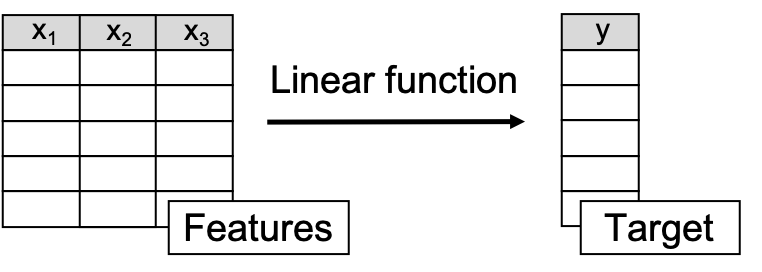
Creating our own dataset
| x1 | x2 | x3 |
|---|---|---|
| 1.76 | -0.37 | -0.60 |
| 0.40 | -0.24 | -1.12 |
| 0.98 | 1.10 | 0.77 |
| ... | ... | ... |
Creating our own dataset
| x1 | x2 | x3 |
|---|---|---|
| 1.76 | -0.37 | -0.60 |
| 0.40 | -0.24 | -1.12 |
| 0.98 | 1.10 | 0.77 |
| ... | ... | ... |

Creating our own dataset

Creating our own target feature:
$y = 20 + 5x_1 + 2x_2 + 0x_3 + error$
Linear regression in Python
from sklearn.linear_model import LinearRegression
lr = LinearRegression()
lr.fit(X_train, y_train)
# Actual coefficients = [5 2 0]
print(lr.coef_)
[ 4.95 1.83 -0.05]
# Actual intercept = 20
print(lr.intercept_)
19.8
Linear regression in Python
# Calculates R-squared
print(lr.score(X_test, y_test))
0.976
Linear regression in Python
from sklearn.linear_model import LinearRegression
lr = LinearRegression()
lr.fit(X_train, y_train)
# Actual coefficients = [5 2 0]
print(lr.coef_)
[ 4.95 1.83 -0.05]
Loss function: Mean Squared Error
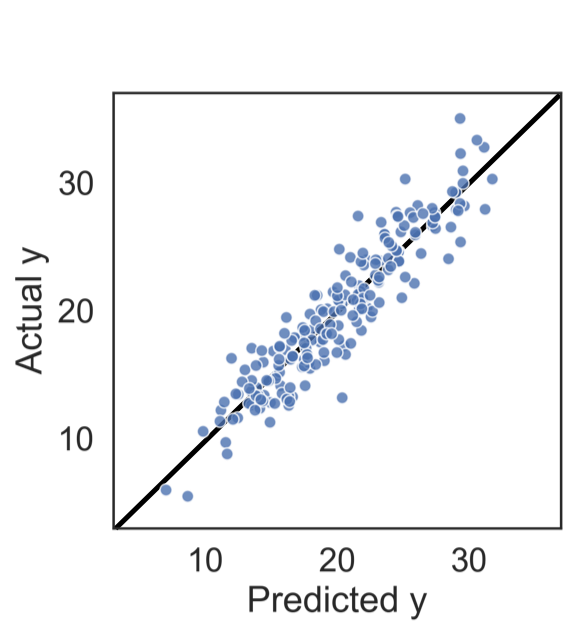
Loss function: Mean Squared Error
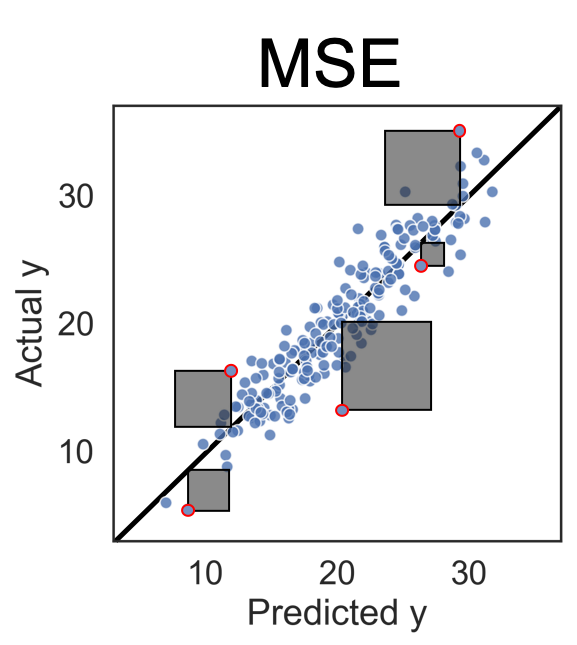
Adding regularization
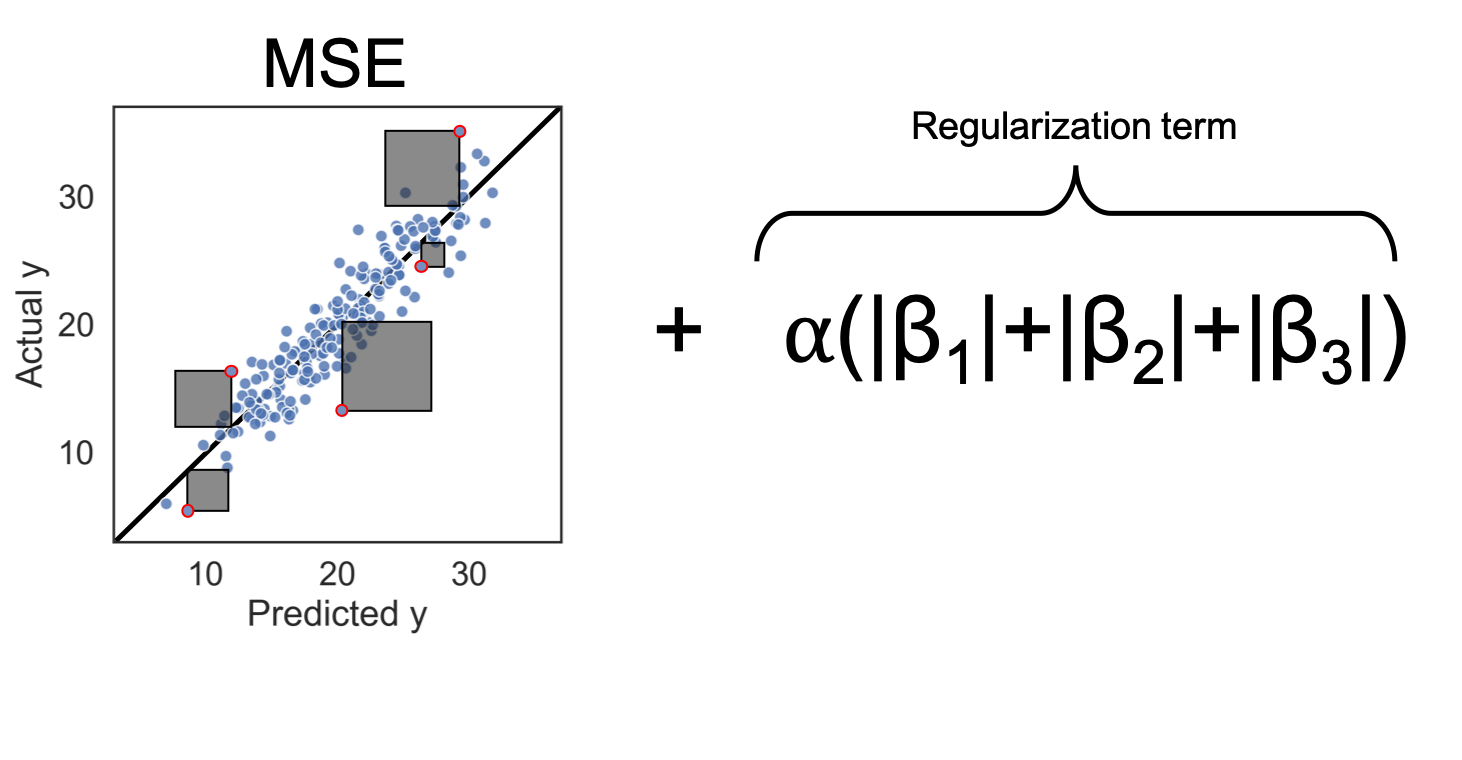
Adding regularization
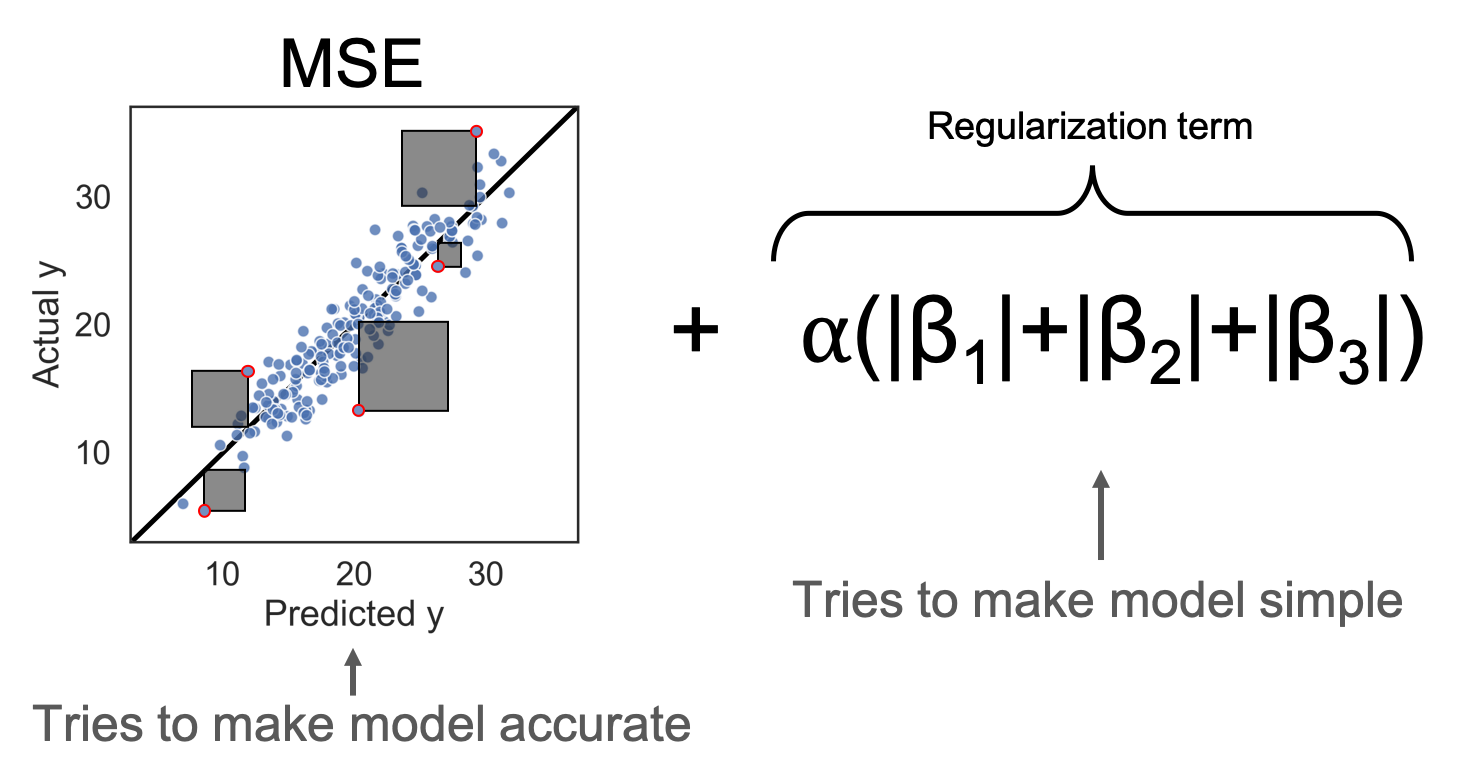
Adding regularization
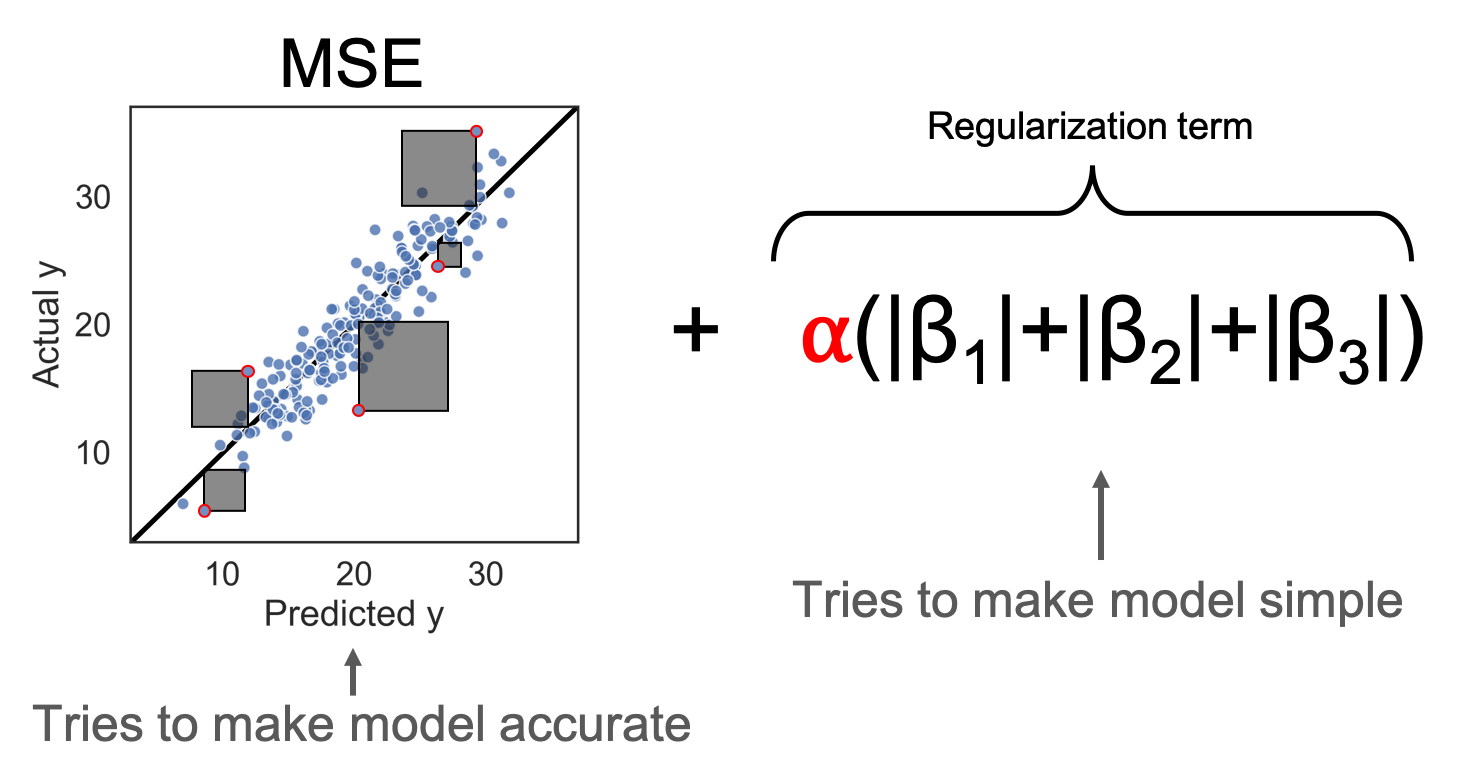
Lasso regressor
from sklearn.linear_model import Lasso
la = Lasso()
la.fit(X_train, y_train)
# Actual coefficients = [5 2 0]
print(la.coef_)
[4.07 0.59 0. ]
print(la.score(X_test, y_test))
0.861
Lasso regressor
from sklearn.linear_model import Lasso
la = Lasso(alpha=0.05)
la.fit(X_train, y_train)
# Actual coefficients = [5 2 0]
print(la.coef_)
[ 4.91 1.76 0. ]
print(la.score(X_test, y_test))
0.974
Let's practice!
Dimensionality Reduction in Python

